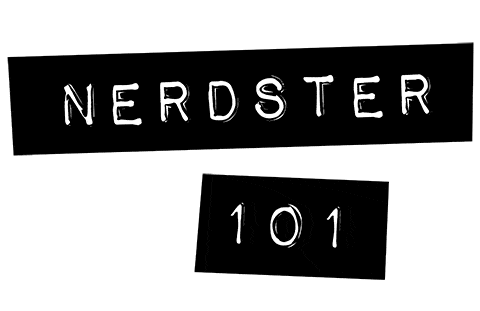Introduction
Embark on a whirlwind tour of Franz Kafka’s “The Trial” in this comprehensive book summary. We will demystify this complex narrative, delving deep into its bewildering bureaucratic world, its tormented characters, and Kafka’s mastery in storytelling. Prepare to dive headfirst into the dystopian reality that Kafka so brilliantly constructs.
“It’s only because of their stupidity that they’re able to be so sure of themselves.”
– The Trial, Franz Kafka.
Book Information:
Title: The Trial
Author: Franz Kafka
Genre: Novel, Absurdist Fiction, Philosophical Fiction
Publication Year: 1925
Brief Overview:
“The Trial” is a disconcerting tale about a man, Josef K., who is suddenly arrested for an unspecified crime and must navigate through a senseless and bureaucratic judicial system.
Background
Author’s Background:
Franz Kafka, a German-speaking Bohemian Jewish novelist, is renowned for his profoundly complex and symbolic narratives, which often delve into themes of existential anxiety, guilt, and absurdity.
Publication Context:
“The Trial” was published posthumously in 1925. Its portrayal of a bewildering and unresponsive bureaucracy is indicative of the rising tensions and institutional inefficiencies in pre-World War II Europe.
Character Summary
Main Characters:
Josef K: The protagonist, a successful bank officer arrested for an unknown crime.
Fraülein Bürstner: K’s neighbor, a brief love interest.
Leni: The lawyer’s mistress who becomes involved with K.
Character Development:
Josef K starts as a confident, ambitious man. As he navigates the judicial labyrinth, his dignity erodes, and he is gradually reduced to a state of despair and resignation.
Plot Summary
Overview:
Josef K, arrested on his 30th birthday, spends the rest of his life fighting the invisible and illogical forces of a bureaucratic judicial system. The plot is a haunting, unsettling journey through a faceless and unfair system that culminates in K’s execution.
Setting:
The story takes place in an unidentified European city during the early 20th century.
Themes and Motifs
Key Themes:
Law and Justice: The novel challenges the concepts of law, justice, and personal rights.
Existential Anxiety: It also explores existential dread and the human condition.
Motifs and Symbols:
The Court: Represents oppressive, faceless authority.
Doors: Symbolize the choices and difficulties K. must face.
Takeaway Morals
Morals:
“The Trial” warns against blind trust in institutions and emphasizes the importance of personal rights and liberties.
Application:
The narrative is eerily relevant today, highlighting the threat of uncontrolled bureaucratic powers and the importance of individual freedoms.
Analysis
Literary Devices:
Kafka uses symbolism, surrealism, and irony to depict an absurd and complex bureaucratic world.
Style and Tone:
The style is complex and surreal, filled with irony and dark humor. The tone is pessimistic and absurd, echoing the protagonist’s despair.
Critical Reception
Initial Reception:
“The Trial” was initially met with confusion due to its complex themes and narrative style.
Current Standing:
Today, it is recognized as a masterpiece of 20th-century literature, influencing existentialist and absurdist thought.
Personal Response
Personal Opinion:
Reading “The Trial” felt a bit like trying to decipher a dream after waking up: you’re sure there’s something significant about a courtroom full of monkeys typing legal documents, but darned if you can make any sense of it! Kafka’s prose, with its mind-bending blend of bureaucracy and absurdity, left me laughing, crying, and shaking my fist at the nearest government building.
Suffice to say, it was the most fun I’ve ever had feeling utterly confused and a little bit scared!
Recommendation:
If you’ve ever wondered how it feels to be a mouse in a Kafkaesque maze of unending bureaucracy, or if you simply fancy a surreal journey through an abstract judicial system that would make even the most hardened lawyer’s head spin, this is the book for you.
Yes, it’s weird, and yes, it’s confusing. But it’s also thought-provoking and timeless in its exploration of human rights and societal systems. So buckle up, keep a dictionary handy, and enjoy the ride!
About the Author
Biography:
Franz Kafka, born in Prague in 1883, was a Jewish lawyer turned writer who profoundly influenced 20th-century literature.
Literary Career:
Despite having only a few works published during his lifetime, Kafka’s posthumous publications, including “The Trial,” “The Castle,” and “Metamorphosis,” have left an indelible mark on literature.
Book Details
Publication Details:
“The Trial” was first published by Verlag Die Schmiede in Berlin in 1925.
Structural Details:
The novel is divided into ten chapters.
Conclusion
Summary:
“The Trial” is a masterful exploration of existential dread, personal liberty, and the absurdity of bureaucracy. It’s a timeless critique of unbridled institutional power.
Final Thoughts:
As we step back from the intricate labyrinth of “The Trial,” we’re left with an unsettling feeling and many questions about society, bureaucracy, and human rights. But that’s the beauty of Kafka’s work – it doesn’t give easy answers, it provokes thought.
Reading “The Trial” is like embarking on a disturbing dream that you cannot shake off after waking up. It lingers, it resonates, it challenges, and, ultimately, it transforms the reader.
-
Père Goriot, by Honoré de Balzac – Quick Book Summary
-
The Wind-Up Bird Chronicle, by Haruki Murakami – Quick Book Summary
-
The Sorrows of Young Werther”, by Johann Wolfgang von Goethe – Quick Book Summary
-
A Room of One’s Own, by Virginia Woolf – Quick Book Summary
